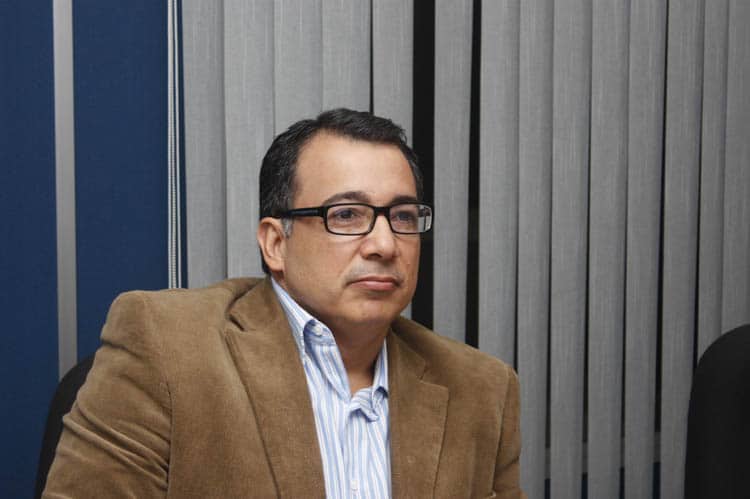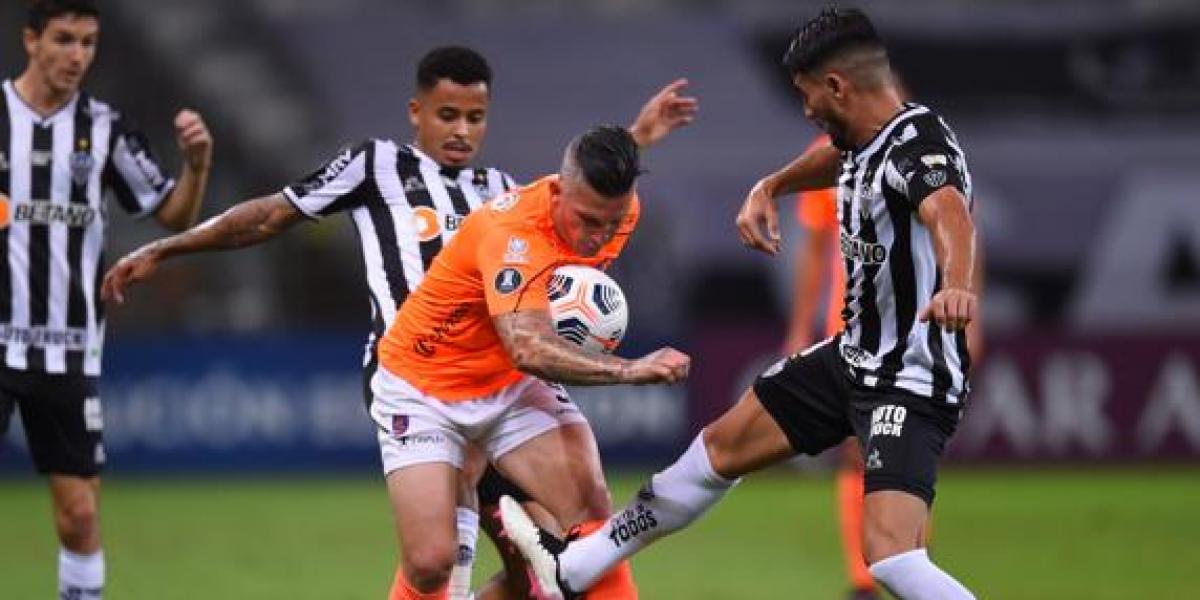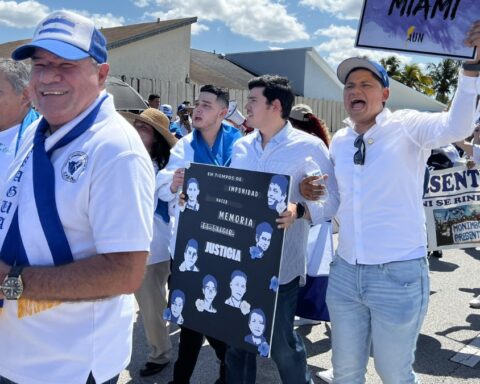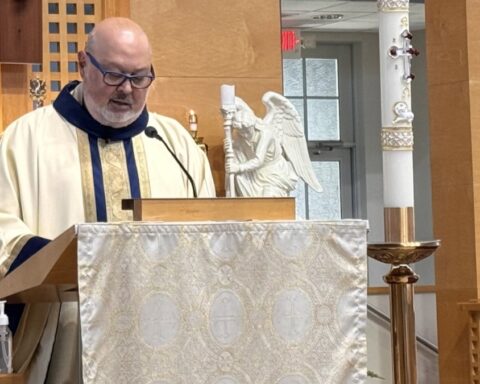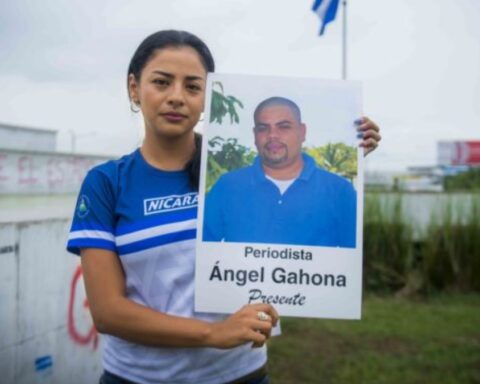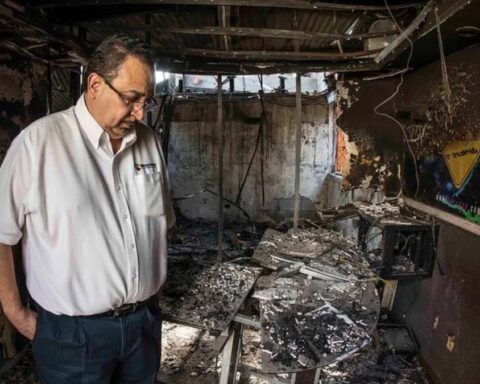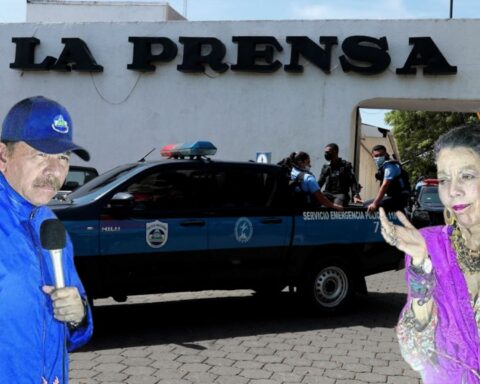The elected president of Costa Rica, Rodrigo Chavez, will try to maintain the same foreign policy towards Nicaragua, values the Costa Rican political scientist Alberto Cortes Ramos. Cchanging direction on this issue “would have a political cost” for his government, since in Costa Rica there is widespread rejection of the Daniel Ortega regime and “in general of what is called Chavism and 21st century socialism,” he commented.
However, the new president only has the support of 10 of 57 deputies in the Legislative Assembly and “it remains to be seen” how much he can do with that correlation of forces, warns Cortes Ramos on this interview he gave to the program Tonight, which is broadcast online due to the television censorship imposed by the regime of Daniel Ortega and Rosario Murillo.
For Cortes Ramos, who is director of the Central American Chair at the University of Costa Rica (UCR), the priorities of the new Costa Rican government will be economic recovery and respect for the rule of law, which is why the day after the ballot he appeased his attacks on the previous governments that he used throughout his electoral campaign.
What does the triumph of Rodrigo Chaves mean, an economist with a practically new political career and in the midst of the largest abstentionism in the history of Costa Rica?
This is a reflection of a society whose politics have been changing in an increasingly volatile way and what gives this volatility to the political system is the fact that fewer and fewer people have a party affiliation or a strong party allegiance. Most Costa Rican citizenship He does not have partisan sympathy and that means that each election is a kind of trick, a kind of lottery, the way in which the electoral process ends up being carried out is very casuistic. In addition, in the midst of this growing volatility there is a sector of the population that is concentrated, mainly, in the periphery of the country that has a malaise installed by a development model that has systematically increased inequality, poverty and reduced opportunities for the population living in those regions… Consistently in these regions and cantons, the candidacies that have an anti-systemic discourse content end up obtaining support that allows them to go to the second round… Thus came a candidate with very particular characteristics that largely capitalized on that malaise and also an accumulated anti-establishment sentiment.
During the campaign, Chaves was questioned about the sanction imposed on him by the World Bank when he worked there for sexual harassment, also for handling his campaign finances while holding a speech about rings in power. Who elected Chaves?
I’m waiting the survey carried out by the CIEP (Center for Political Research and Studies) immediately after the second round to see how people voted. One question I have is how women voted, because there is certainly a significant reduction in votes between what the polls said at the beginning of the second round and what ended up being the result… It was a very emotional choice. A good part of the people who voted for Chaves actually voted against Figueres. Figueres possibly did not grow any more due to the rejection that he has dragged on for years due to the questions being raised about the corruption scandal in which he was involved, in the case of Alcatel, and also by (his party) Liberación Nacional, which also has a series of questions for cases of corruption… Chaves —on the other hand— constructed a narrative in which he established himself as the outsider, and in reality he was an outsider because he had not lived in the country for 27 years, and managed to talk about the fact that the problem was not the previous government, this government of Alvarado, but all previous governments in the last 40 years. Then, the issue is not only who voted for Chaves and for what reasons, but also who did not vote for Figueres and for what reasons.
Chaves has also been criticized for his populist speeches, for attacking journalists and media outlets in Costa Rica. What type of government can be expected on issues such as human rights, democracy and freedom of the press?
It is true that it was a very polarized campaign, very strong in terms of accusations, accusations and even insults and disqualifications… However, it remains to be seen if with the correlation of forces that he (Chaves) has, which is not exactly very favourable, In fact, if one analyzes the factors of power that are involved, the institutional, the factual, and also the citizen and social factor, in reality this is possibly going to be a government with a weak and complicated mandate… I think we’ve already started to see, from the night he gave the winner’s speech, a turn towards a de-escalation of attacks. The next morning he was with (the journalist) Ignacio Santos in a very calm interview, he has already met with former president Figueres and stated that the issue of partisan sympathy is not going to be an important issue when choosing the people who They will accompany you in the cabinet. vWe are going to live now what is known here as the honeymoon, which are those first 100 days of government, during which the political forces, and even the social ones, give a waiting time to see where the actions are going and who appointed to government posts.
This Monday, April 4, Chaves said that, unlike the current government, he will send an ambassador to Nicaragua. What can be expected in foreign policy, in particular towards Nicaragua?
It seems to me that the president —at the same time— pointed out that he is about to make effective a decision that had already been made during this administration, which was to send a person to represent, and in fact she is going to be an ambassador. What happened was that in the midst of that decision, the dictatorship of (Daniel) Ortega and (Rosario) Murillo imprisoned practically the entire opposition leadership and that was what stopped the decision to send that person. However, the president-elect was careful that this was not interpreted as an endorsement of the dictatorship, but as a situation in which every state has to have representation unless relations are broken, which was more or less what he said. , that if Nicaragua leaves the OAS or if it moves towards a situation in which relations would have to be broken, at that moment the decision to withdraw will have to be made, but he gave the example of other countries where there are strong differences and despite that there are diplomatic relations. It would be a mistake to assume that this answer to the question asked by a journalist is going to be a radical change in Costa Rican foreign policy, because he himself had been careful to say that matters of state, of Costa Rican foreign policy, are going to maintain and that has to do with a strong and clear discourse of respect for human rights, promotion of peace and also the environmental issue and sustainable development.
Do you think that the Chaves government is going to maintain Costa Rica’s position in multilateral forums of promoting resolutions, actions for the return of democracy and human rights in Nicaragua or it could change?
He has raised the need to protect national interests in relation to the economy above all, it is a more economic discourse, and he has mentioned that he will welcome the refugee population. The refugee is fleeing from the dictatorship, so if he is going to welcome him, that already gives you an indication that there is awareness that on the other side (in Nicaragua) there is a regime that persecutes its citizens and forces them to leave. So it seems to me that we have to give a waiting time to have more elements that allow us to be clear about how that relationship is going to be managed. Change direction on this particular issue in a radical way —that is to say that from now on we will have a policy like the one that Juan Orlando Hernández had, in Honduras, of fraternity and camaraderie and therefore turn a blind eye to the critical situation in terms of human rights violations—if that were the route followed by the new government, it would have a political cost for the government because it is true that in this country (Costa Rica) there is a large majority that rejects Ortega and in general to what is called chavismo and socialism of the 21st century. I think that this is something that the incoming government will value, although I think it would be strange if there were such a radical turn on that particular issue.
And what did Chaves promise in terms of immigration policies and how are they going to affect the lives of the tens of thousands of Nicaraguans in Costa Rica?
In reality, it was not a central issue in electoral politics and I think that in good time it was not, because I am afraid that this could rather activate a xenophobic polarization. What he did point out is that the refugee population will be able to come and that is, paying for the services they use and the corresponding taxes. I think that was a reassuring nod in electoral terms because in reality the refugee population and the migrant population pay for the services they use. It is something that already happens and in terms of tax payments as well. In fact, we must remember that a good part of the migration that is here left not for refuge but for economic reasons and because the country requires a migrant labor force to be able to carry out a series of strategic activities economically speaking, all agricultural exports, commerce and other services, construction, domestic employment, are jobs that are fundamentally carried out by the migrant population and if they were not here that would imply a critical situation for these activities. So, he did not give any indication that a great transformation was going to take place, but I hope there is a possibility that the new government will have spaces for dialogue with people, both those who are working on the migratory issue here and with the same organizations of the exiled and refugee population and also of the migrant population.because I believe that there are aspects of the migration policy that could be improved and that could even facilitate the channeling of more external resources in order to improve care for the refugee population.
What is Costa Rica’s main challenge and how is Chaves going to address it from the Executive and with a bench of 10 of 57 deputies in the Assembly?
Right now the main problem is determined by the economic situation and the crisis from which we are beginning to have some symptoms of recovery, but we still have very high poverty, higher unemployment than we had before the pandemic, and I think that those They are urgent matters.

